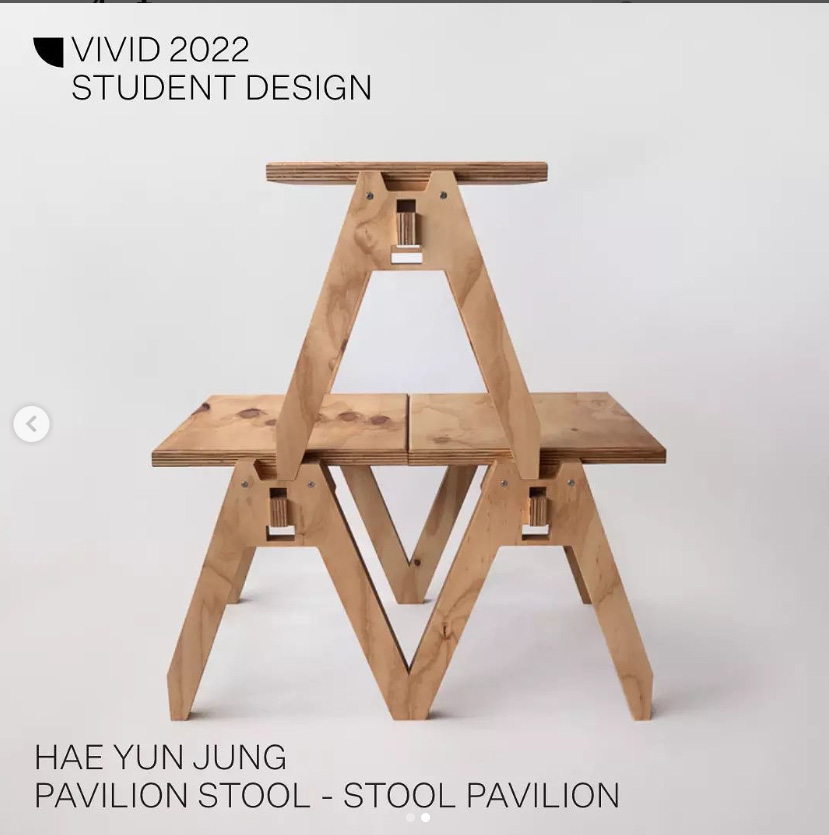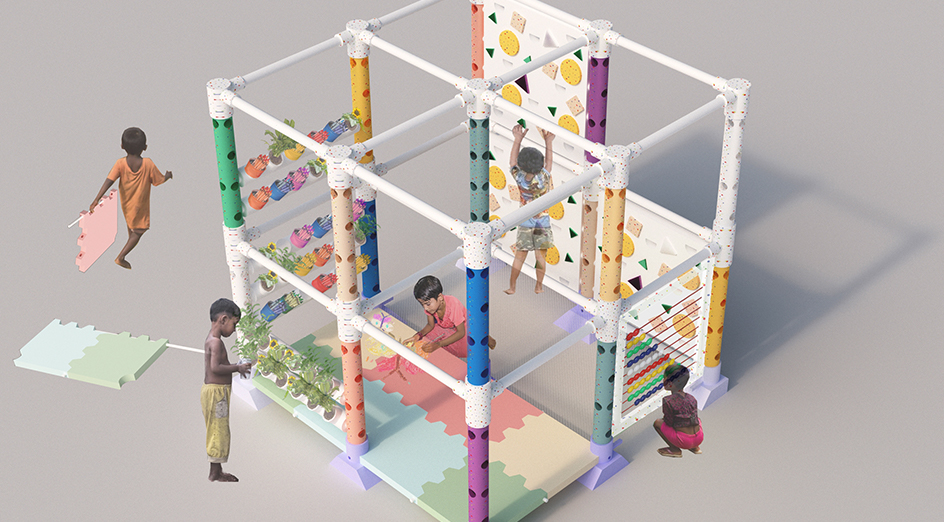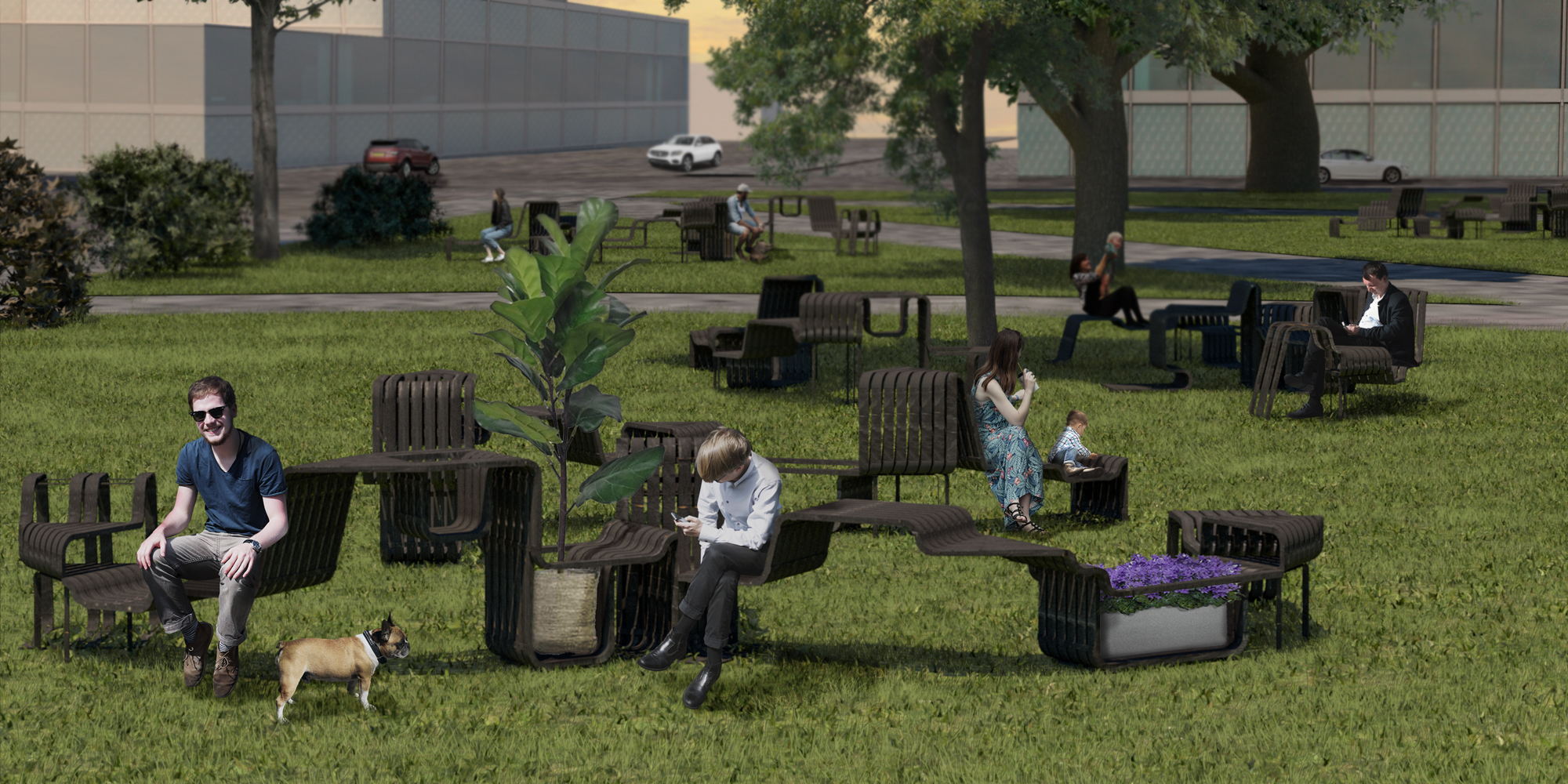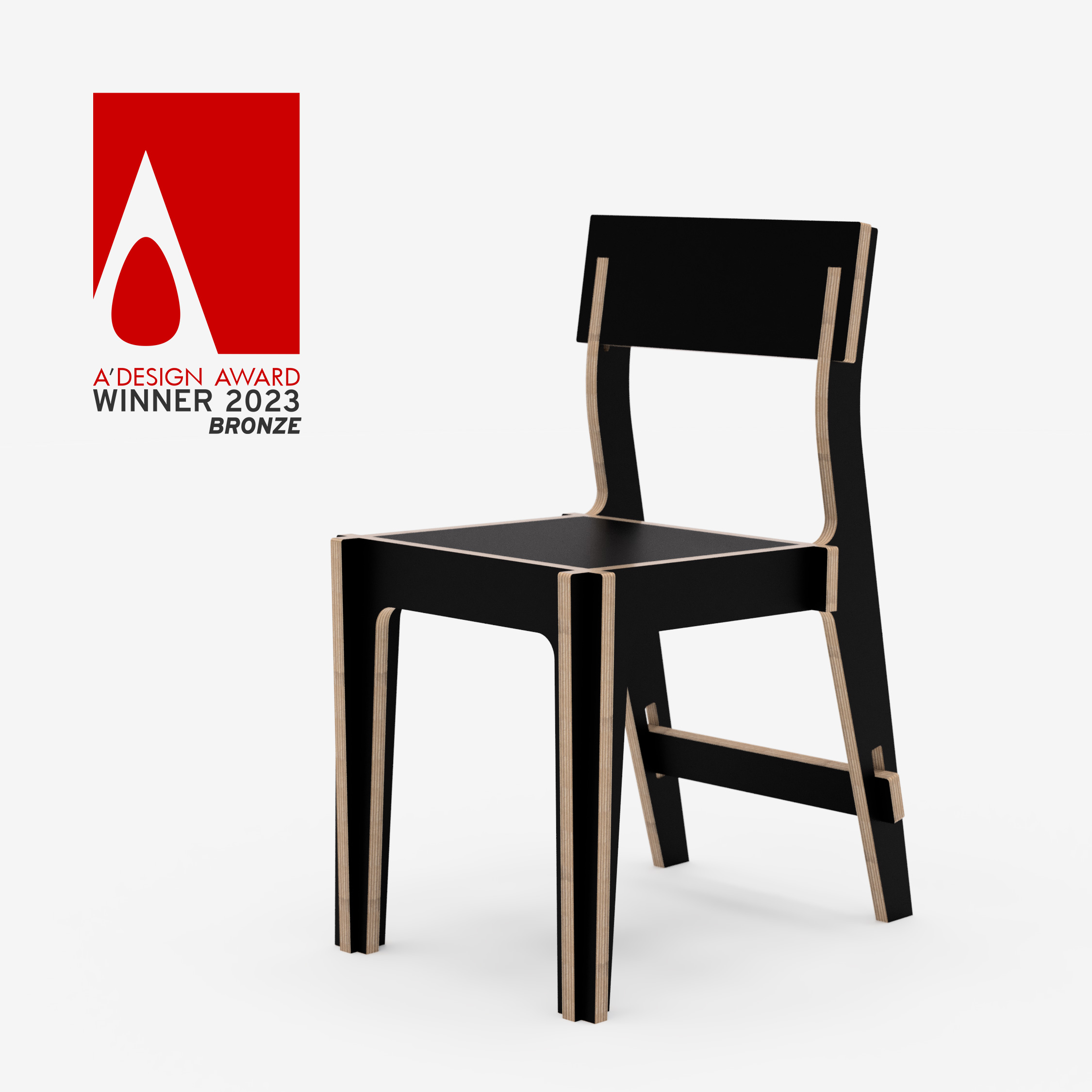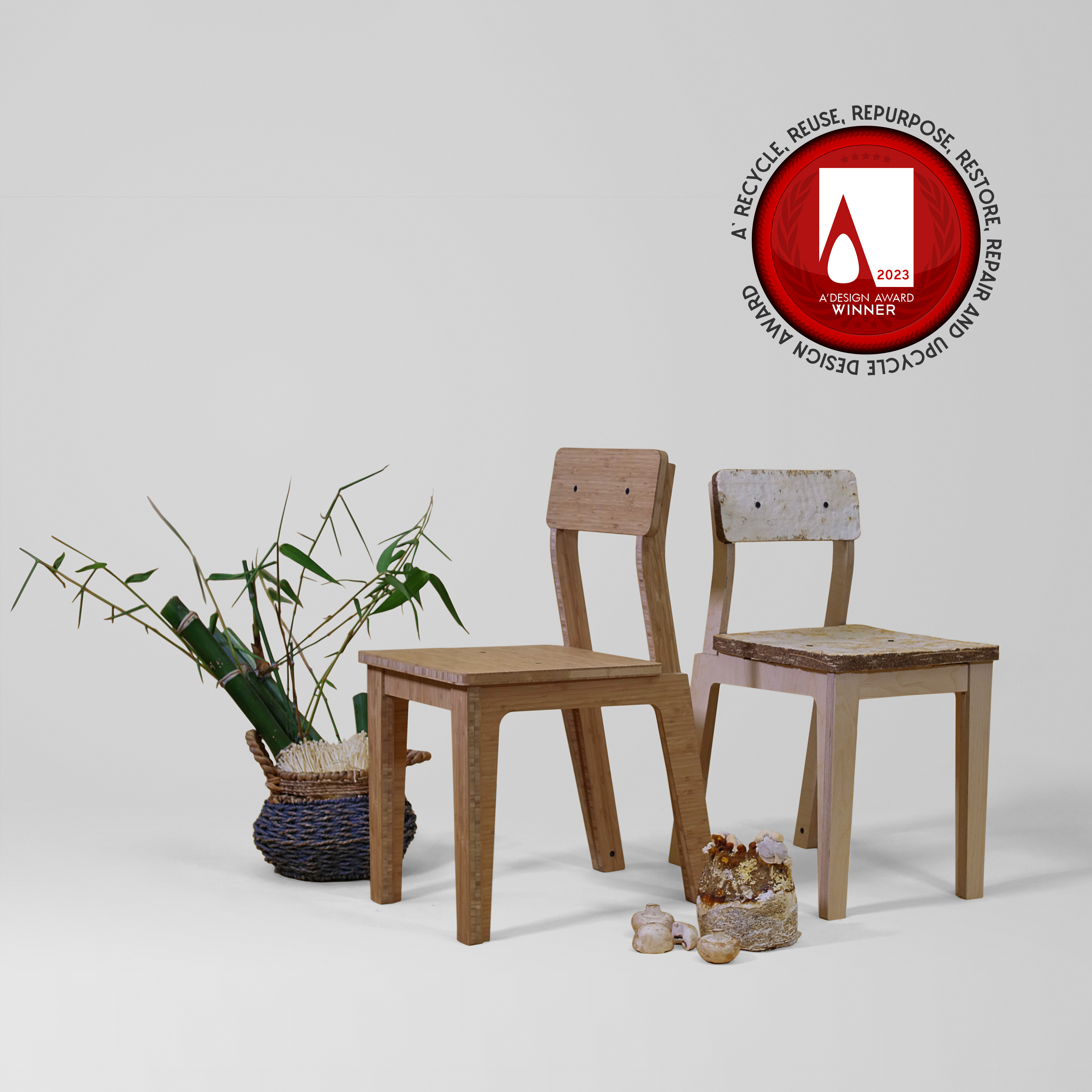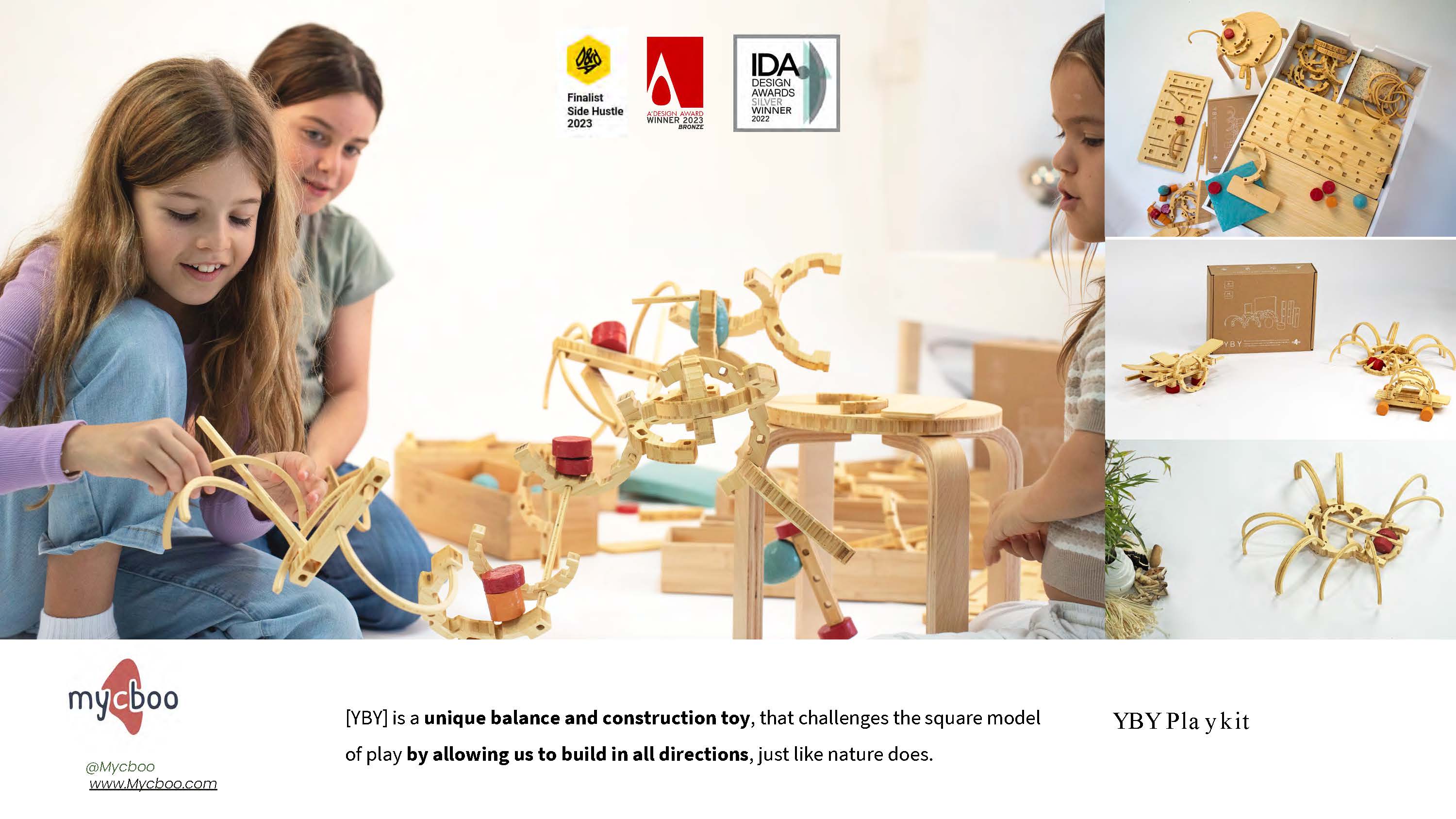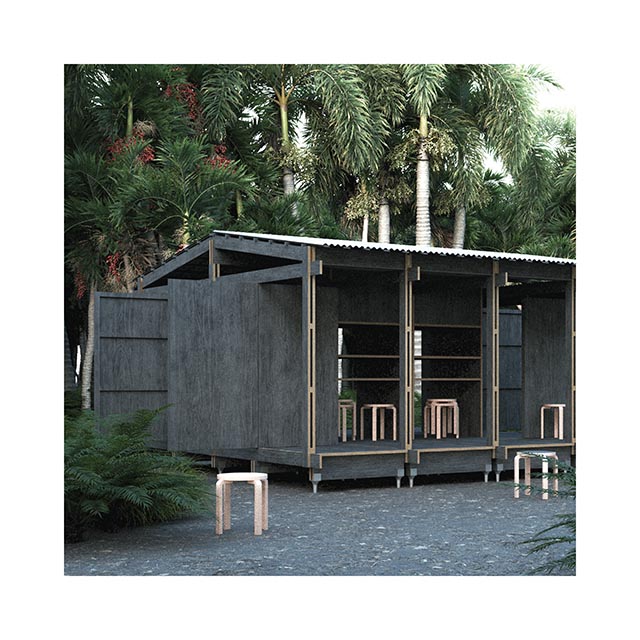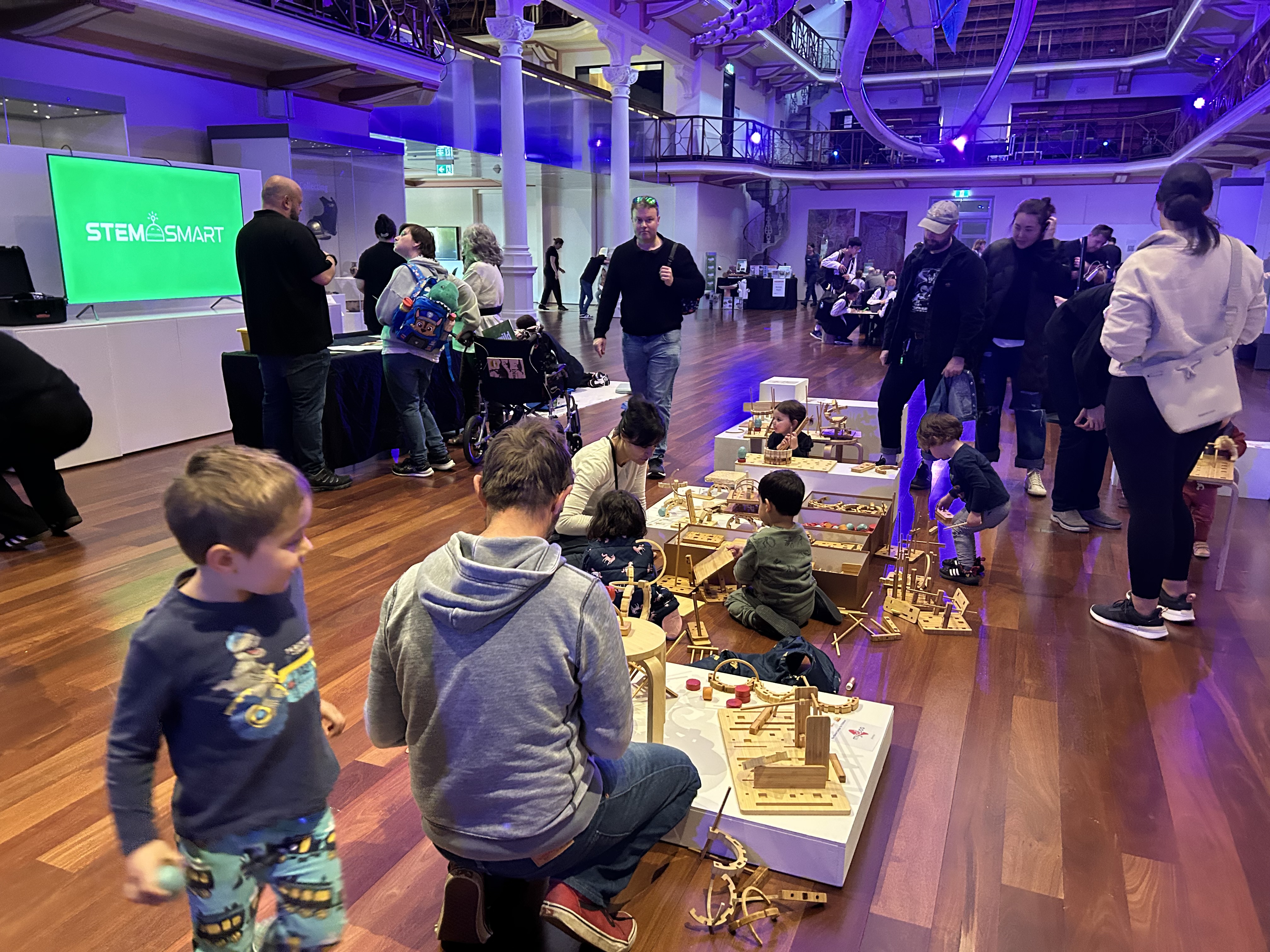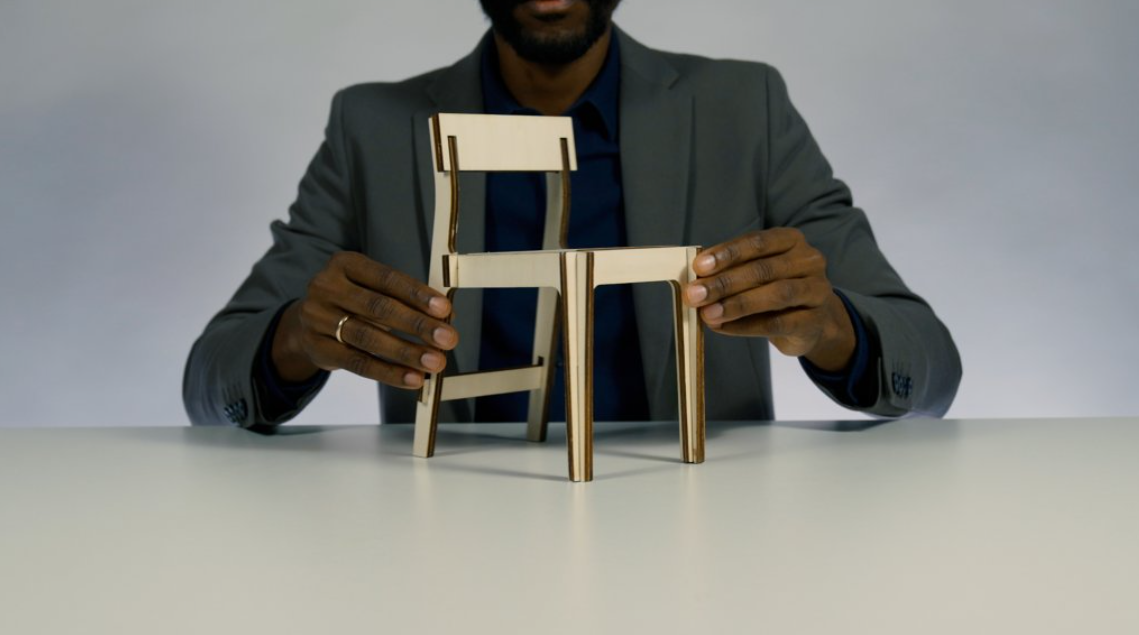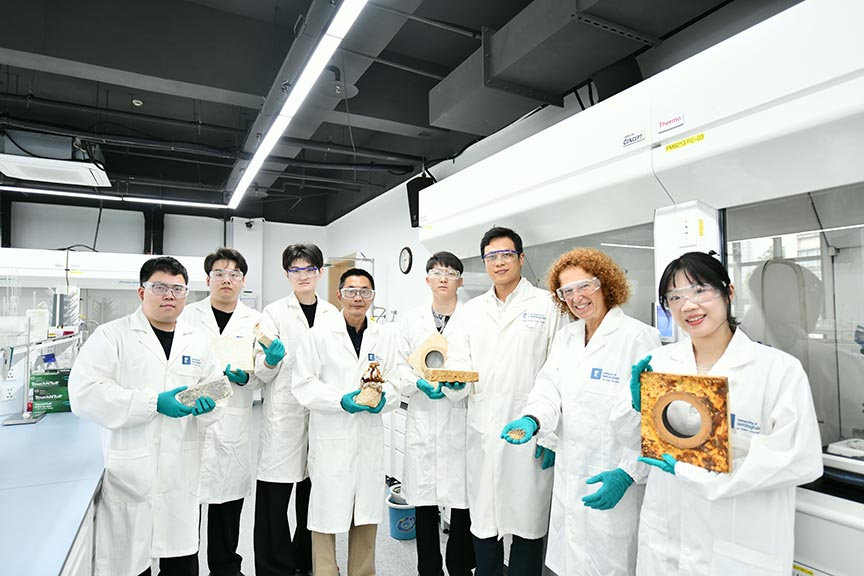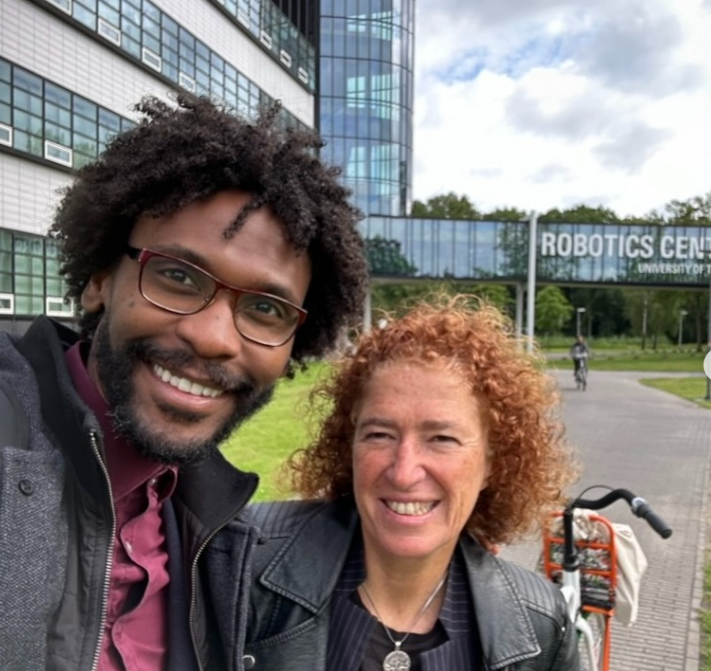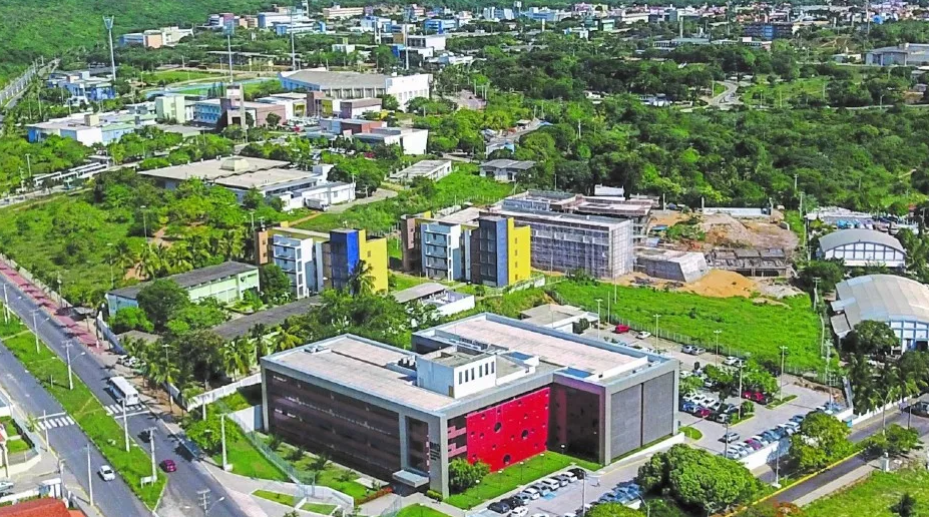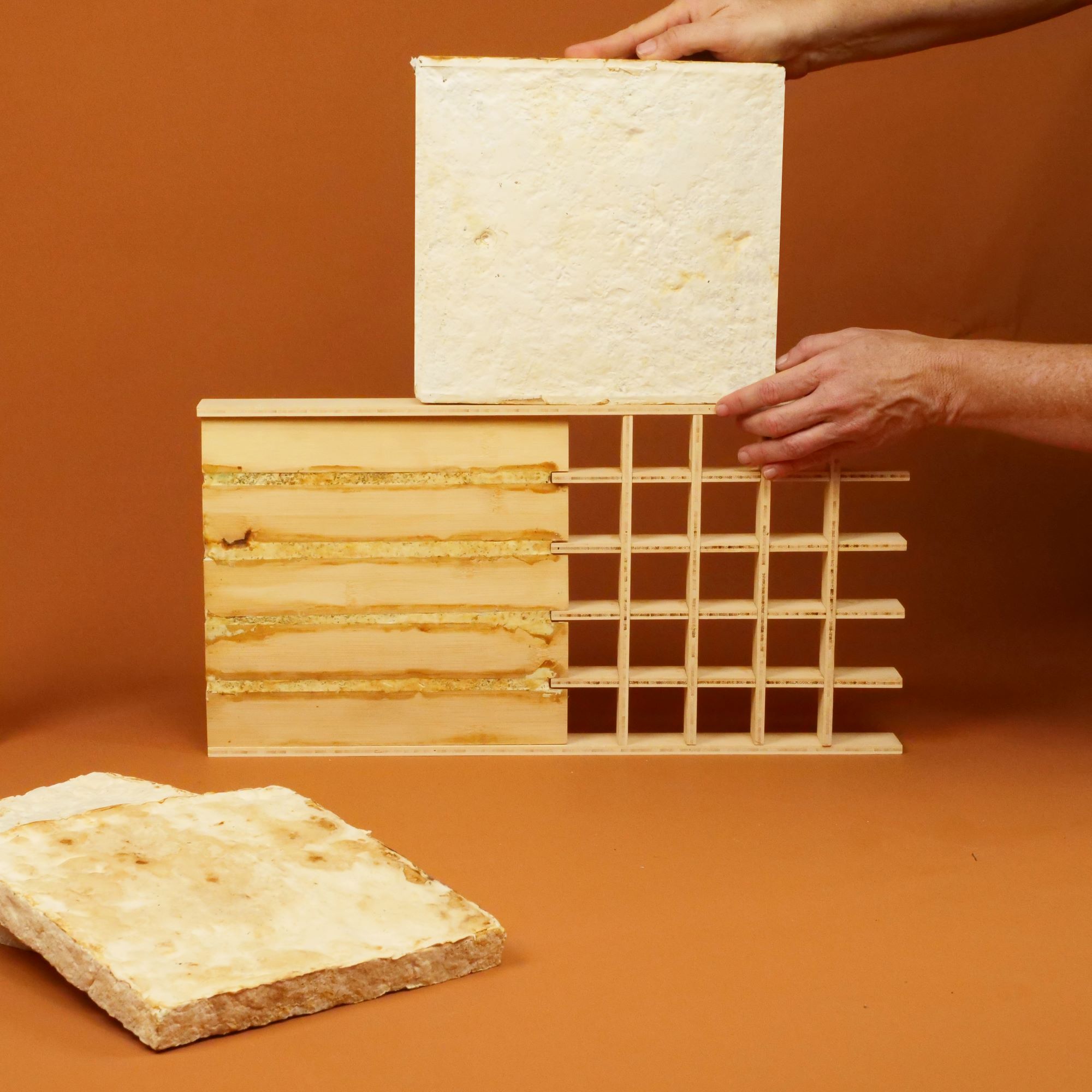Project
Bio-Based Materials Design Lab
Harnessing resources and energy for a sustainable future
The BBMLab is a multicultural and interdisciplinary community that conducts cutting-edge research, develop solutions for complex societal problems and fosters disruptive innovation.
We promote the use of sustainable bio-based materials such as bamboo, mycelium, engineered timber, hemp, strawbales, algae, amongst others, to support the transition to a biocircular economy and create positive change.
Project goals
Our mission is to create better living environments for people and regenerate the planet through design.
We showcase that sustainability in design can be achieved by combining traditional knowledge, bio-materials research, modern fabrication techniques and emerging technologies.
Project summary
Bio-materials research is expanding fast into the 21st century construction and design industry in particular. Products such as mycelium, spinifex, guayule, seaweed, strawbale, bamboo amongst other bio-materials, have large potential for commercial application. The design element of integrating contemporary solutions is fundamental for the development of this industry.
The Bio-Based Materials Design Lab has been advancing its research in bio-materials and biofabrication, in particular hybrid use of mycelium and bamboo, to develop products out of bricks and boards that can be flexible in its applications, durable [e.g. water, fire and termite resistance] and have good compressive and tensile strength.
The aim is to apply these products into design contexts [scale of product and architectural design] that can be locally produced and have scalability and sustainability of manufacturing.
At the BBmLab we combine this knowledge with modern fabrication techniques and emerging technologies such as parametric & algorithm-aided design, digital fabrication and augmented reality to create positive economic, social and environmental impact.
Our research has also helped us rethink our pedagogical models, which ultimately influences our future environmental and social leaders, our current students. Through specific research led units [ ARCT5885 – Bio-Based materials in global settings, at the Masters of Architecture, our best graduates are invited to participate with us on industry and research projects, and have been successful on international design competitions and industry collaboration.
We collaborate with international partners and established a new design and build studio tailored for our undergraduate students [ ARCT2040 and ARCT3020], the Vertical Hybrid Studio. This studio expresses our common vision of ‘global design opportunities that are locally made’.
Join us for our newly launched unit (2024) Living Architecture (LIVA) ARCT4585, which can be taken as part of the Master of Architecture and Master of Landscape Architecture courses, and as a micro credential in the UWA Plus BBMUnit (available online or face-to-face intensive in 2025).
- Learn more about the Bio-Based Materials Design Lab.
Design Awards
Stool Pavillion - Pavillion Stool
Stool Pavillion - Pavillion Stool
National Design Award [VIVID]: Stool Pavillion - Pavillion Stool 2022 Finalist
Students: Julia Catalano, Paul Jung, Matthias Widjaja, Sophia Do
ARCT5885 - Bio-based Materials in Global Settings [2021]
This project was also part of one of the final briefs for the unit ARCT5885, coordinated by Dr Tenorio. The students were challenged to design a piece of furniture or a pavilion, or both, using bio-materials and circular economy strategies, such as modularity, design for disassembly, refurbishment opportunities, etc. The students were selected nationally as finalists in two categories at the prestigious VIVID design award in Victoria [Student and Concept categories].
Tool Kit of Self-Resilience
UWA students Calvin Thoo, Lyana Ibrahim O Mahat, Nurul Azman and Nur Hafizah Mohammad designed a ‘Tool Kit’ of Self-Resilience.
Tool Kit of Self-Resilience
'Tool Kit of Self-Resilience: Reimagining Play - Designing resourceful playgrounds in refugee camps. International Competition Awards - Finalist, UNI-XYZ
by Calvin Thoo, Lyana Ibrahim O Mahat, Nurul Azman and Nur Hafizah Mohammad
A group of UWA Master of Architecture students has won an Editor’s Choice award in the international Re-imagining Play International Design Competition for their design of a refugee camp learning and play unit.
UWA students Calvin Thoo, Lyana Ibrahim O Mahat, Nurul Azman and Nur Hafizah Mohammad designed a ‘Tool Kit’ of Self-Resilience.
The group’s playground is made entirely of recycled plastic waste, with discarded drink bottles and either items being turned – through 3D printing – into a series of primary structures, joineries and independent components.
Members of the Kutupalong refugee camp community are then able to assemble, disassemble, re-assemble and repurpose these parts.
Ribbons of Growth
Designed by Nurul Azman, Lyana Ibrahim, Thanh Thao, David Morgan
Ribbons of Growth
Ribbons of Growth: Reconnect: Reimagining Furniture for Public Spaces during COVID-19 – Runner Up, UNI-XYZ
Designed by Nurul Azman, Lyana Ibrahim, Thanh Thao, David Morgan
Four UWA Master of Architecture students have placed second in an international design competition with their model for COVID-safe outdoor seating.
The competition, Reconnect: Reimagining Furniture for Public Spaces, asked university students to design street furniture for public spaces in the context of the pandemic.
Nurul Azman, Lyana Ibrahim, Thanh Thao and David Morgan’s ‘Ribbons of Growth’ design is intended to support increased physical distancing and meet the varying needs of individuals.
IDA Chair
Bronze Award Winner – Furniture Design Category, A-Design, Italy 2022-23
IDA Chair
IDA Chair: Bronze Award Winner - Furniture Design Category, A-Design, Italy 2022-2023
Designed by Jairo de Costa
Ida embodies a unique design through an elegant and timeless aesthetic, focusing on simplicity, ergonomics, materials and modern craftsmanship. It showcases how prosumer products like Do-It-Yourself furniture can be intelligent, sophisticated, functional and, most importantly, sustainable. The chair can be customised and ordered online, ready to assemble locally or made by anyone using a web platform and digital fabrication technologies. The result is a versatile chair with a single sustainably sourced material and a few parts assembled in seven easy steps without nails, screws or glue.
UMA Chair
Bronze A’Design [Italy] Award Winner in Recycle, Reuse, Repurpose, Restore, Repair and Upcycle Design Category, 2022 - 2023
UMA Chair
Uma Chair: Bronze Award Winner – Recycle, Reuse, Repurpose, Restore, Repair and Upcycle Design Category. A-Design, Italy 2022-23
Designed by Jairo da Costa, Rosangela Tenorio and David Morgan
Uma chair was designed using circular principles and sustainable design strategies. It is the first product in a series of furniture designed for sustainable personal fabrication aimed at low-income communities in developing and emerging markets. Uma is made of locally available hardware and bio-based materials with natural and non-toxic finishing. It is intended to empower people, allowing anyone to fabricate sustainable furniture for better living spaces. Its name comes from the official languages of East Timor, Tetum and Portuguese, meaning “Home” and “First”, respectively
Buka Panels
Bronze A’Design [Italy] Award Winner in Biomaterials, Ecological and Sustainable Materials Category, 2022 - 2023
Buka Panels
BUKA Panels: Bronze Award Winner - Biomaterials, Ecological and Sustainable Materials category. A-Design, Italy 2022-2023
Designed by Rosangela Tenorio
Buka Panels are mycelium and bamboo external wall panels that can be locally sourced and manufactured to scale with very little resources or machinery. Designed for warming climates, the panels offer increase in thermal and daylight comfort with low energy consumption and low embodied energy. The use of digital fabrication in the design minimises the number of joinery components while allowing for multiple configurations and efficient detailing. It is a flexible and yet simple design that allows for entrepreneurship opportunities for income generation and social impact.
YBY Playkit
Bronze A’Design [Italy] Award Winner in Circular Economy and Waste Reduction Design Category, 2022 - 2023
YBY Playkit
YBY Playkit
Bronze A’Design [Italy] Award Winner in Circular Economy and Waste Reduction Design Category, 2022 - 2023
Silver International Design Award [IDA - USA] Winner in Toy Design/Construction Toy Category, 2022
Finalist in D&AD [UK] Side Hustle Category, 2023
CERI [Perth - AUS] & Malka Foundation startup funding recipient, 2023
Design Team: Rosangela Tenorio and Debaprana Sarkar
Yby is the first magnetic construction and balance toy made out of mycelium and bamboo, and is completely plastic free. It challenges the conventional design of wooden toys by using a system of arches and linear pieces that operates both in compression and in tension. This allows Yby to form organic shapes spanning in all directions. It is open-ended with a customised locking system to provide endless opportunities for play. Yby was developed in the belief that imagination is an essential part of childhood and that caring for the environment is the platform for their future. Yby is 100 percent plastic free and is manufactured using bio-based materials. Yby means ‘Earth’ in Tupi, an archaic language spoken by the indigenous peoples from Brazil.
Read more
BBMLab Design Pitch Competition 2023 Runner-up: My-Cell
BBMLab Design Pitch Competition 2023 Runner-up: My-Cell
BBMLab Design Pitch Competition 2023 Runner-up: My-Cell
Designed by Michael Dean, David Morgan, Thao Thanh Pham and Yuan Xu
Creating an architecture studio space within a university campus outdoor space calls for a design that adapts to multiple functions and can be repurposed throughout the year. ‘My-cell’ provides flexibility to adapt to different needs, mainly as a classroom or lecture space, where the layout of the modules is flexible to transform. The module can be arranged for passive use such as study spaces and reading pods, or could be positioned into exhibition spaces for biomaterials, art, books, and models or presentation space for students with flexibility for digital slideshows or physical pin-up. The functional utility shelving rotates to provide additional flexibility when open and when closed acts as the module facade for combined or segmented storage. This Design Lab Studio space is not just a structure; it is a living, learning, breathing space that adapts, grows, and contributes to its academic surroundings.
BBMLab Design Pitch Competition Winner 2023: 24/12 Studio
BBMLab Design Pitch Competition Winner 2023: 24/12 Studio
BBMLab Design Pitch Studio Competition 2023 Winner:24/12 Studio
In response to demands for adaptable, cost-efficient, and sustainable architectural solutions, we have developed 24/12 Studio. Central to our concept is the remarkable versatility of plywood sheets. Our response utilizes plywood along with fixings, timber joinery and standard roof sheeting to create a system centered around a modular “bay.” The “bay” can be easily replicated, allowing to fulfill diverse spatial requirements efficiently and economically. Moreover, the construction process is remarkably accessible, requiring only a CNC machine and minimal construction expertise. The CNC machine not only simplifies the assembly but also ensures precision by cutting the necessary lengths and marking the fixing locations.
Above all, our Plywood Studio design exemplifies maximizing the utility of a common material in a highly efficient manner, thereby underlining its potential to contribute to timber construction that is easily disassembled, recycled, or repurposed, reflecting a conscious commitment to sustainability.
Funding
- Research Collaboration Grant UWA, University of Nottingham Ningbo China (UNNC) and Zhejiang University
- 2024
AUD$83,350 - Kimberley Social Innovation Project
DLGSC [Department of Local Government Sport and Cultural Industries] - 2021
AUD$10,000 - Bavarian Research Alliance
- 2019-2021
Bay IntAn
AUD$13,000 - NCP – DFAT [New Colombo Plan, Department of Foreign Affairs and Trade]
- 2021-2023
AUD$92,400 - 2019 - University of Nottingham – UK [Cascade Award]
- 2019
AUD$5,000 - Study Abroad – UWA
- 2019
AUD$24,000 - JFIPP Research Fellowship
- 2025-2027
Japan Foundation
AUD$120,000
Impact News
YBY Playkit at WA Museum Boola Bardip
YBY Playkit at WA Museum Boola Bardip
WA Museum Boola Bardip Perth invites award winning toy: YBY to be exhibited during National Science week 23
National Science Week is Australia’s annual celebration of science and technology. Running each year in August, it features more than 1000 events around Australia, including those delivered by universities, schools, research institutions, libraries, museums and science centres.
In 2023, YBY playkit was invited to exhibit at the WA Museum Boola Bardip - Perth during National Science week. Over 1000 children and adults visited the stands and had a chance to play and have fun exploring innovative toys made with biomaterials and completely plastic free. They learned as they interacted with the displays on how the toy industry is still the most plastic intensive industry in the planet. 90% of toys are made of plastic that contain PVC or Phthalates, are petroleum based, hard to recycle and mostly used for just 6 months before being sent to landfill.
UMA chair Dutch Design Week
UMA chair Dutch Design Week
UMA chair is exhibited at Dutch Design week 2024
This research-though-design project resulted in a design framework for circular and distributed production and two open-source chairs. These represent the first of many furniture products in a series that is specifically designed for sustainable personal fabrication and aimed at low-income communities in developing and emerging markets. UMA and IDA are carefully designed Do-it-Yourself chairs, adopting circular principles and sustainable design strategies. These chairs initiate a crucial conversation about how to shape the future of making by empowering people to take a central role in creating more sustainable built environments.
The UMA chair is constructed with locally available hardware and bio-based materials (e.g., grass, fungi and wood) with natural and non-toxic finishing. Its name comes from the official languages of East Timor, Tetum and Portuguese, meaning “Home” and “First”, respectively.
Read more about Dr Jairo da Costa's work, BBMLAB co-founder and Assistant Professor at the University of Twente, the Netherlands below.
BioScienceLab formed at UNNC
BioScienceLab formed at UNNC
BioScienceLab is formed at UNNC: a space for joint research collaboration on biomaterials, engineering and design.
January 2025
Japan Foundation Fellowship and BBMLab Partners
Japan Foundation Fellowship and BBMLab Partners
Professor Dr Rosangela Tenorio is awarded prestigious Japan Foundation fellowship
Congratulations to Professor of Architecture, UWA-SoD, Dr Rosangela Tenorio and the team at the BBMLAB [@bbmdesignlab] on being awarded the Japan Foundation fellowship - JFIPP (Japan Foundation Indo Pacific Partnership Program) for the period 2025-2027
Rosangela will work within an international group of researchers from [e.g. Agriculture, Engineering, Architecture and Product design], local bamboo carpenters and mycelium and bamboo farmers based in Japan, Australia, The Netherlands, Timor-Leste and Brazil. They will develop policy guidelines and a prototype for housing that can be easily deployed in post disaster, remote and rural contexts and that can be grown out of biomaterials, such as mycelium and bamboo. Such materials in particular mycelium will improve thermal performance reducing the effects of extreme climatic events [e.g. heatwaves].
Roofing and ceiling components in particular will be designed, manufactured, monitored and benchmarked to existing market products. The aim is to provide affordable and technically superior solutions to current high embodied energy and low thermal performance imported components. Mycelium and bamboo will allow users to grow components in-situ increasing agency, decreasing energy use and climatic vulnerability.
Rosangela was one of 3 academics awarded across Australia, out of a total of only 11 fellowships awarded in 2024.
She will be hosted in Japan by Kyushu University, in Timor-Leste by Bamboo Institute Timor, in The Netherlands by the University of Twente and in Brazil by Federal University of Rio Grande do Norte - UFRN [Natal].
Cover Photo: Drs Rosangela Tenorio and Jairo da Costa* (co-founders of the Bio-Based Materials Design Lab @bbmdesignlab.
*Dr Jairo da Costa @jairo.da.costa is a Product designer based at the University of Twente, The Netherlands and is an adjunct Senior lecturer at The School of Design - UWA.
BBMLAB partners with Federal University of Rio Grande do Norte – UFRN-Brazil
BBMLAB partners with Federal University of Rio Grande do Norte – UFRN-Brazil
BBMLAB partners with Federal University of Rio Grande do Norte - UFRN - Brazil
BBMLAB partners with UFRN [Federal University of Rio-Grande do Norte, NATAL – Brazil] to develop mock-up to be monitored and evaluated in communities working with LABCON [Thermal comfort lab- UFRN] as part of a PhD project led by researchers at UFRN- Department of Architecture and research being conducted on biomaterials at BBMLAB. The aim is to provide affordable and technically superior solutions to current high embodied energy and low thermal performance imported components and products.
LABCON – UFRN, based at the Department of Architecture, Natal, Brazil, has a strong team of interdisciplinary qualified researchers, committed to the development of environmental design and performance in buildings. They have strong partnerships with various other laboratories within UFRN, nationally and internationally.
Researchers at UFRN:
Professor Aldomar Pedrini
Professor Edna Moura Pinto
PhD Scholar Marcella de Sa Leitao Assuncao
UFRN website
BBMLAB Camp launches at UWA PLUS
BBMLAB Camp launches at UWA PLUS
BBMLAB Camp launches at UWA PLUS [July 2025]: micro-credentials for teachers to advance environmental science and technologies in classrooms anywhere, and outreach workshops for design for sustainable production and consumption in communities in WA! This is a project developed in collaboration with the University of Twente.
This project is a collaborative effort with Dr Rosangela Tenorio, Associate Professor of Architecture at UWA, along with the team from the Bio-based Materials Design Lab. This online platform aims to educate citizens by co-designing and creating nature-based solutions that address global environmental challenges. This project is closely connected to the BBMLAB Camp. The BBMLAB Camp consists of a series of micro-credentials designed for individuals who have completed a Bachelor’s Degree and are eager to learn about the application of biomaterials in design, particularly in engaging with climate action through sustainable production and consumption within the contexts of architecture and product design. This program empowers citizens to actively contribute to the transition towards alternative production and consumption systems by providing learning resources and a platform that enhances sustainability in open-source resources, customises solutions to local contexts, and fosters knowledge sharing between makers and the broader community. Furthermore, it involves the continuous development of innovative, sustainable, open-source products and resources for learning, such as circular furniture, blue-green panels, and making and upcycling manuals.
PhD opportunities and scholarships
We welcome engaged research scholars that are driven by research led design, to advance the mission of the BBMLab and be part of our team of scholars and industry collaborators. We seek in particular candidates that have a proven record of publications in the area of bio-materials research and digital fabrication-emerging technologies, or/and design awards and practice based work in these fields.
A Bachelors and Masters degree in Architecture or Product design is desirable but we do welcome outstanding candidates from interdisciplinary relevant areas too. Bio-materials design and research experience and/or bio-fabrication experience is essential. A research proposal needs to be sent at the time of application with list of publications relevant to the proposal. Please check UWA requirements for PhD entry, as these are deemed essential.
 Dr Rosangela Tenorio, Bio-Based Materials Design Lab Co-Founder, Professor of Architecture
Dr Rosangela Tenorio, Bio-Based Materials Design Lab Co-Founder, Professor of Architecture
Dr Jairo da Costa, Bio-Based Materials Design Lab Co-Founder, Adjunct Senior Lecturer Product Design (pictured right)
I'm an architect and designer, with an interest in sustainability in design in the School of Design at UWA. My research is currently focused on bio-based materials research and its potential application and translation into commercial products for the construction industry with affordability of resources. I'm also interested in bio-based design for educational locations and for children. I've been engaged for decades in the understanding of sustainability issues of design in the tropics and from a historical and documentation point of view, I'm interested in continuing this area of research too.
Dr Rosangela Tenorio, Bio-Based Materials Design Lab Co-Founder, Professor of Architecture
External collaborators
Contact
Professor Rosangela Tenorio

